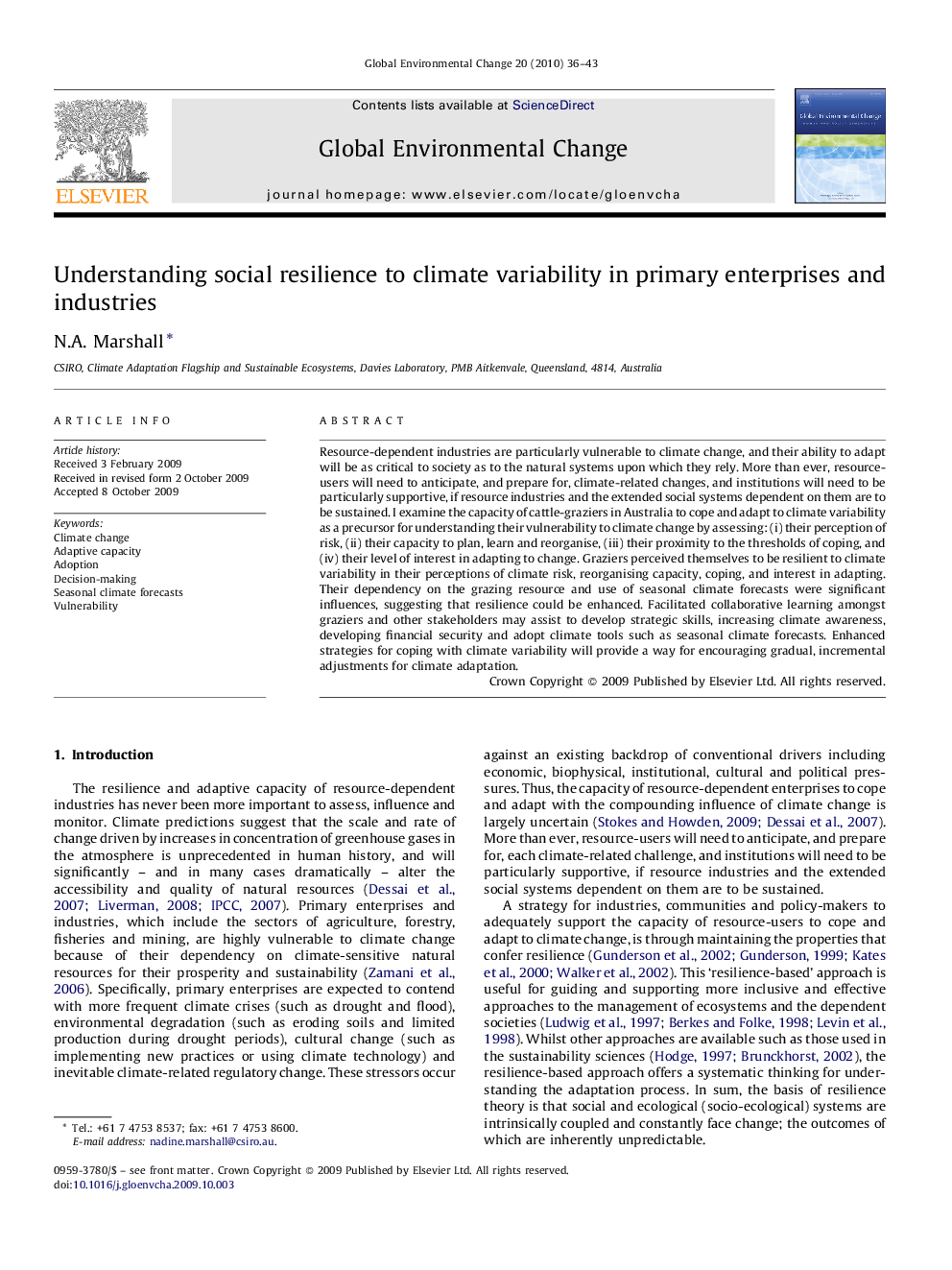| Article ID | Journal | Published Year | Pages | File Type |
|---|---|---|---|---|
| 1055011 | Global Environmental Change | 2010 | 8 Pages |
Resource-dependent industries are particularly vulnerable to climate change, and their ability to adapt will be as critical to society as to the natural systems upon which they rely. More than ever, resource-users will need to anticipate, and prepare for, climate-related changes, and institutions will need to be particularly supportive, if resource industries and the extended social systems dependent on them are to be sustained. I examine the capacity of cattle-graziers in Australia to cope and adapt to climate variability as a precursor for understanding their vulnerability to climate change by assessing: (i) their perception of risk, (ii) their capacity to plan, learn and reorganise, (iii) their proximity to the thresholds of coping, and (iv) their level of interest in adapting to change. Graziers perceived themselves to be resilient to climate variability in their perceptions of climate risk, reorganising capacity, coping, and interest in adapting. Their dependency on the grazing resource and use of seasonal climate forecasts were significant influences, suggesting that resilience could be enhanced. Facilitated collaborative learning amongst graziers and other stakeholders may assist to develop strategic skills, increasing climate awareness, developing financial security and adopt climate tools such as seasonal climate forecasts. Enhanced strategies for coping with climate variability will provide a way for encouraging gradual, incremental adjustments for climate adaptation.
